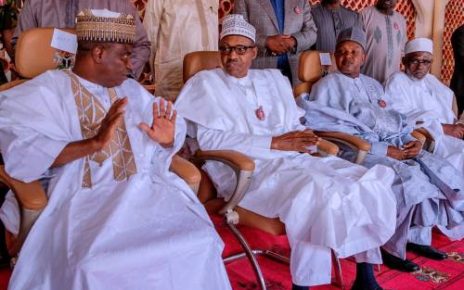Gov Sanwo-Olu clearly violated the Lagos procurement law by choosing PAYTECH as the sole revenue collector for all the state-owned tertiary institutions without a competitive bidding process
Facts have emerged on how Gov Sanwo-Olu, the governor of Lagos State, jettisoned the state’s procurement law to select Payment Technology Limited (PAYTECH) to collect revenues such as school fees, consultancy charges, rent on behalf of all the state-owned tertiary institutions.
PREMIUM TIMES gathered from reliable sources and proposals submitted to the individual schools that only grants paid either by the Tertiary Education Trust Fund (TETFund) or any other grantors are exempted from the new charges.
This newspaper had in September exclusively reported the imposition of PAYTECH on the institutions with an arbitrary 10 per cent commission payable to the private firm on each transaction.
However, apart from boycotting competitive bidding processes as mandated by the state’s procurement law, as revised in 2015, the governor has also violated a key section of the law which places the procurement responsibility on the chief executive officers of each of the agencies and departments of government.
What the law says
The governing rules on public procurement as specified under section 22, subsection 1, paragraphs (a)-(g) of the law clearly recommend open competitive bidding “using clearly defined criteria and offering to every interested bidder equal information and opportunities to offer the works, goods and services needed.”
However, Section 59 of the law permits restricted tendering but with a caveat as specified under subsection 1, paragraphs (a)-(c), that “subject to the approval of the state’s procurement agency, a procuring entity may by reasons of economy, efficiency, special skills, experience and proven track record of a contractor or service provider over a period of time, initiate procurement by means of restricted procurement if:
Read Also – Nigeria’s Inflation Climbs Further, Hits 14.89% In November
“(a) the goods, works or services are available only from a limited number of suppliers or contractors; or (b) the time and cost required to examine and evaluate a large number of tenders are disproportionate to the value of the goods, works or services to be procured, or (c) the procedure is used as an exception rather than the norm.”
The provisions of section 30, subsection 1 and 2, paragraphs (a)-(g) also clarify whose responsibility it is to account for the procurement processes.
Source – https://www.premiumtimesng.com/



